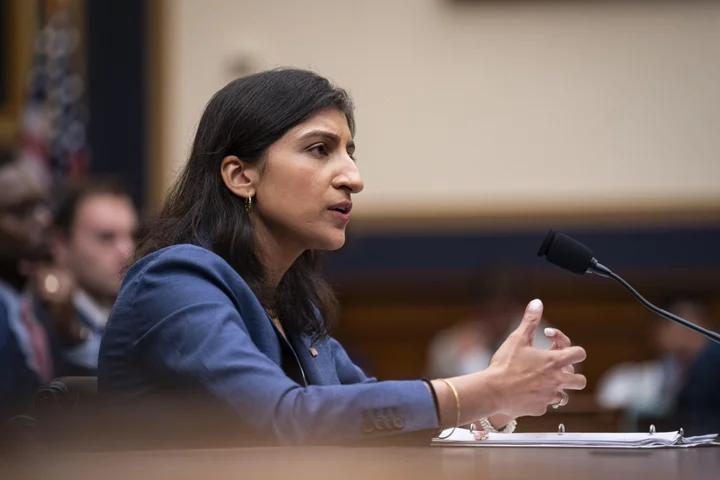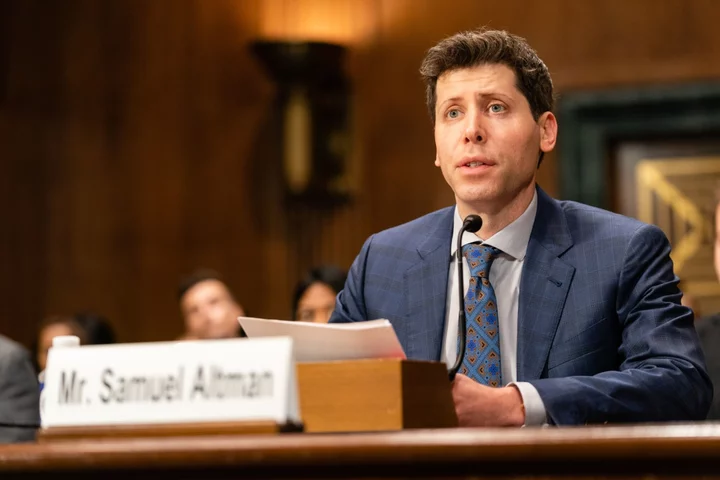Federal Trade Commission Chair Lina Khan defended the agency’s record in court, pushing back on criticism in the wake of its unsuccessful challenge to Microsoft Corp.’s Activision Blizzard Inc. takeover.
“In federal court, we have lost two merger cases. We have brought somewhere between 13 and 20, depending on how you count,” Khan said in a question-and-answer session following a speech at the Economic Club of New York on Monday. “In the scheme of our merger enforcement program, losing two is OK.”
In prepared remarks, Khan stayed away from the FTC’s recent losses, focusing instead on a number of deals abandoned after the agency filed suit including Lockheed Martin Corp.’s attempt to buy rocket maker Aerojet Rocketdyne Holdings Inc.
But she acknowledged that the nature of the Microsoft deal – the company doesn’t compete directly with Activision, the maker of popular video game titles played on Microsoft’s Xbox and rival consoles – made the legal challenge difficult.
“There’s no question that vertical mergers are tougher to litigate,” she said, referring to deals between companies in the same supply chain that aren’t direct competitors.
A federal judge ruled in favor of Microsoft and Activision on July 11 after an FTC challenge to the deal. The agency is appealing the ruling. The companies have yet to close the deal because of objections by UK competition enforcers.
During her appearance Monday, Khan also emphasized new merger rules unveiled last week by her agency and the Justice Department. Some have criticized the guidelines for relying heavily on cases in the 1960s and 1970s, but Khan noted that those decisions are “still good law.”
“There’s no expiration date,” she said. “That remains good law unless and until a Supreme Court decision is subsequently overturned.”









